Bill of Rights Day
About 18 Results- Best Selling
- Newest
- Top View
- Price: Low to High
- Price: High to Low
- Top Discount

It's The Bill Of Rights Not The Bill Of Feelings Gun Rights Tank Tops

IT'S THE BILL OF RIGHTS NOT THE BILL OF FEELINGS T-Shirt
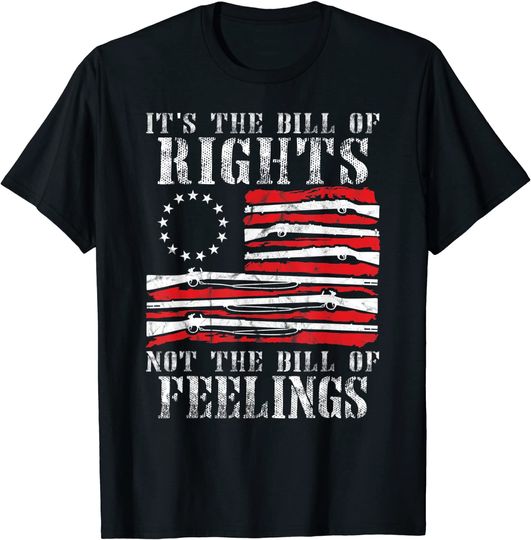
It's The Bill Of Rights Not The Bill Of Feelings Gun Lover T-Shirt

It's The Bill Of Rights Not The Bill Of Feelings USA Flag T-Shirt
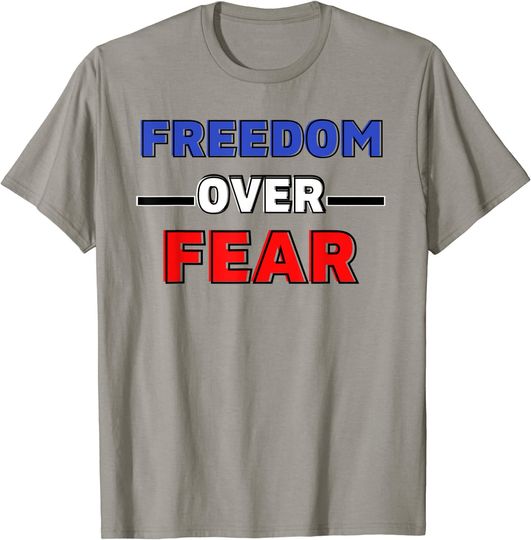
Freedom Over Fear, Gifts for Freedom Lovers, Bill of Rights T-Shirt

It's The Bill Of Rights Not The Bill Of Feelings USA Flag T-Shirt
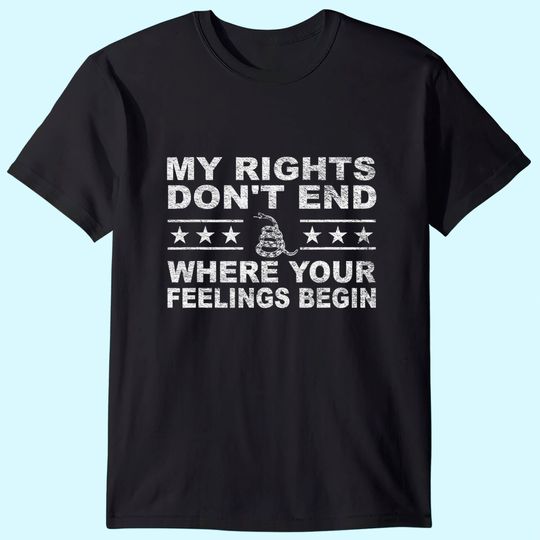
MY RIGHTS DON'T END WHERE YOUR FEELINGS BEGIN GADSDEN SNAKE T-Shirt
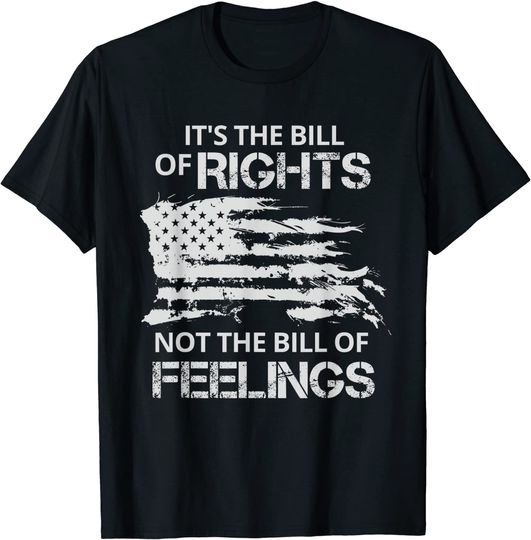
It's The Bill Of Rights Not The Bill Of Feelings USA Flag T-Shirt

It's The Bill Of Rights Not The Bill Of Feelings USA Flag T-Shirt
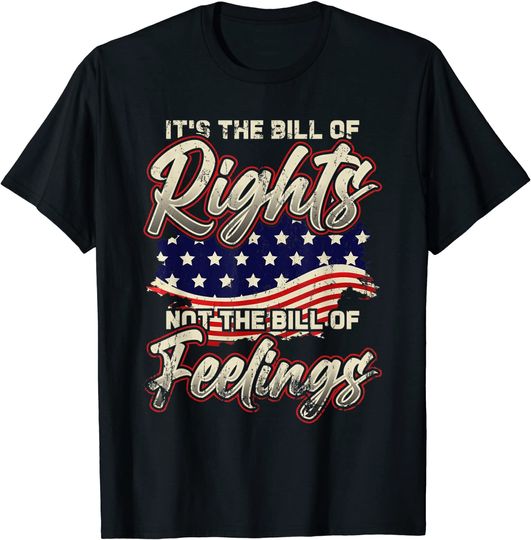
It's The Bill Of Rights Not The Bill Of Feelings - USA Flag T-Shirt

OF COURSE I'M RIGHT I'M BILL - Funny Gift Idea T-Shirt

Its The Bill Of Rights Not the Bill Of Feelings American T-Shirt

It's The Bill Of Rights Not The Bill Of Feelings - USA Flag Pullover Hoodie

It's The Bill Of Rights Not The Bill Of Feelings Pullover Hoodie

It's The Bill of Rights Not The Bill of Feelings Hoodie
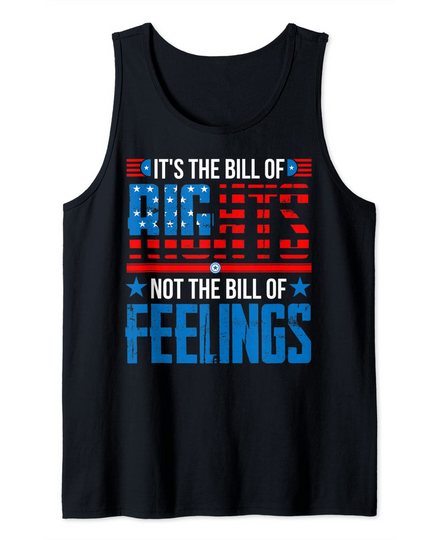
It's The Bill Of Rights Not The Bill Of Feelings Tank Top
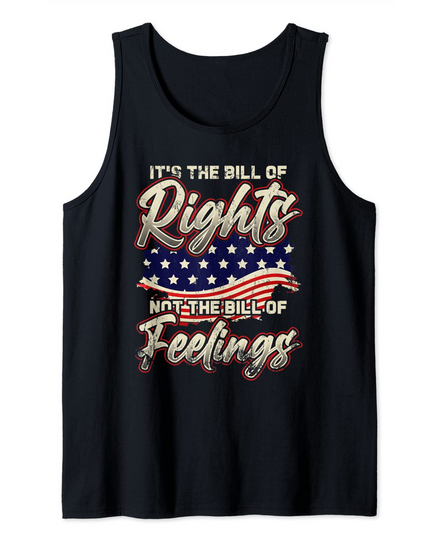
It's The Bill Of Rights Not The Bill Of Feelings - USA Flag Tank Top
- Showing 1 - 18 of 18 unique products
What Is Bill Of Rights Day?
The first ten amendments to the Constitution are known as the Bill of Rights. Individual rights were not a priority for the Framers when they drafted the Constitution. They concentrated on establishing the government's system and structure. Many Americans thought that the Constitution should protect citizens' rights, and they sought a list of what the government could and could not do. They feared that a powerful government would revoke the liberties gained during the Revolutionary War.
One of the Constitution's Framers, James Madison, compiled a list of individual rights and government limitations. The Bill of Rights, which contains the first ten amendments, enumerates these rights. Freedom of expression, the right to keep and bear arms, the right not to be searched without a warrant, the right not to be tried twice for the same crime, the right not to testify against yourself, the right to a fair trial by a jury of your peers, the right to an attorney, and protection from excessive fines and unusual punishments are just a few of these rights. On December 15, 1791, the Bill of Rights was approved. The 15th of December is celebrated as Bill of Rights Day.
What Is The History Of Bill Of Rights Day?
Let's take a look back at the origins and history of Bill of Rights Day, which falls on December 15th, the 225th anniversary of the Bill of Rights.
The first ten amendments to the Constitution, eventually known as the Bill of Rights, were ratified on December 15, 1791.
These changes ensure citizens equal protection under the law and defend our most fundamental rights—freedom of expression, protest, and conscience.
In 1941, Congress passed a joint resolution authorizing the President to "issue a proclamation designating December 15, 1941, as Bill of Rights Day, calling upon officials of the Government to display the flag of the United States on all Government buildings on that day, and inviting the people of the United States to observe the day with appropriate ceremonies and prayer."
President Franklin D. Roosevelt declared December 15, 1941, to be Bill of Rights Day in a proclamation made in November. He called the constitution "the great American charter of personal liberty and human dignity" in his statement.
Roosevelt later praised liberty-loving nations that uphold the liberties stated in our charter in a radio address on Bill of Rights Day, a week after we entered World War II and chastised countries like Nazi Germany for destroying those same rights.
The request was made again in 1946, and this time President Harry Truman issued the decree.
It's "appropriate that we should set aside a day for somber reflection of our liberties and of the recent worldwide war to safeguard them from extinction," Truman wrote, after having recently fought World War II against people who didn't believe in individual rights.
Truman repeated the order the next year, but not during his presidency.
Ironically, Truman gave the comments at the opening of the Bill of Rights, together with the Constitution and Declaration of Independence, in the National Archives in 1952, the year he did not make a Bill of Rights Day proclamation.
"We are convened here on this Bill of Rights Day to give tribute to the three great texts which, combined, comprise the charter of our form of government," Truman said during the event on December 15, 1952.
Every year since 1962, the President has recognized Bill of Rights Day. The proclamation was frequently combined with a proclamation commemorating Human Rights Day and Week, which commemorates the adoption of the Universal Declaration of Human Rights by the United Nations General Assembly in 1948.
The original Bill of Rights is on exhibit seven days a week at the National Archives in Washington, DC (except Thanksgiving and Christmas).
How To Celebrate Bill Of Rights Day?
We commemorate Bill of Rights Day every year on December 15th. Some of us, at least, do. Others may be unaware that it exists. It is, though, and it is especially deserving of praise this year.
On December 15, 1791, three-quarters of state legislatures approved the Bill of Rights, a document containing the first ten Amendments to the United States Constitution. In practice, these Amendments restrict and mold the authority of the United States Congress to rule us, the people of the United States. In effect, they determine the extent to which we, the people of the United States, consent to be ruled by the three parts of our government.
These eight Amendments safeguard our most fundamental and valued liberties. Our rights to freedom of religion, speech, and lawful assembly are all protected under the First Amendment. These and subsequent Constitutional Amendments are aimed to ensure that our country's laws treat all Americans fairly.
When you read the Amendments (which you can do because I've included the full text below), you'll notice that they were carefully and purposefully enacted to address the concerns – and real-life experiences – of the people in the room at the time, who had just won the Revolutionary War against a country that was then a Super Power. It had been a long time, and their lives had been much different from ours. Nonetheless, the language they adopted is so adaptable that it has permitted the Bill of Rights' scope and meaning to broaden and deepen throughout time, addressing specific rights and freedoms that no one could have imagined in 1791.
You'll also notice that none of the rights enumerated in the Bill of Rights are absolute. Along with rights, there are responsibilities. Freedom and responsibilities go hand in hand.
This year, numerous of the Bill of Rights' promised freedoms, as well as their related responsibilities, have been put to the test in ways that are unique to our day. We've seen how these Amendments, which were passed 229 years ago, have maintained their vigor, relevance, and significance throughout the process.
The First Amendment has been put to the most rigorous and public test of all the amendments in 2020. The First Amendment is essential to our existence and identity as Americans because it prohibits Congress from passing laws prohibiting the establishment of religion, "abridging" our freedom of speech and press, or our right to peacefully assemble and "petition the Government for a redress of grievances."
In 2020, Americans gathered together to march and speak in favor of the Black Lives Matter movement and in commemoration of their countrymen who died because they were not treated fairly under the law. Protesters opposing BLM were likewise protected under the First Amendment.
As time went on, both parties realized that the Bill of Rights guarantees is limited and that those boundaries are eventually established by the courts. Several prosecutions against demonstrators have been dropped in recent months on First Amendment grounds in a number of locations. Others are still ongoing and will continue to progress through the courts.
All candidates participated in political speech in the months leading up to Nov. 3, 20290, one of our most protected kinds of expression. The incumbent and his supporters have had free reign in the weeks after the election to air claims of fraud and election tampering. Even the incumbent, now former, the attorney general concluded that there was no proof of electoral fraud. Nonetheless, the incumbent and his legal team took their claims to several courts, where they discovered that claimants must produce genuine, admissible proof to avoid dismissal, no matter how loudly or frequently complaints are made.
The Covid-19 pandemic has put the First Amendment to the test yet again, as many of our fellow citizens have refused to wear protective face masks or avoid congregating in large crowds, arguing that doing so would violate their freedoms of expression, religion, and other less well-defined liberties. The relevance of these arguments was shown only last month when the United States Supreme Court declared that New York's Covid-19 guidelines prohibiting big church organizations from assembling could not be implemented. The majority concluded that the provisions were unenforceable because they discriminated against churches in comparison to other companies governed by the statutes.
Of fact, freedom of expression has always been restricted in many ways, such as the oft-quoted restriction against causing hazardous fear in a packed theater by yelling "fire." Furthermore, the possibility of libel and slander litigation restricts our capacity to make false, negative public remarks about others. Even in libel cases, though, expressing the truth is a defense.
The Second Amendment (full text below) states that the right of the people to keep and bear arms shall not be infringed upon because a well-regulated militia is vital to the security of a free State. As we have lamented the death of our fellow citizens to mass shootings and other illicit exercises of this right, the limitations of this freedom have been questioned several times.
The Second Amendment's boundaries, rights, and responsibilities were put to the test in other ways in 2020, as we saw citizens standing outside their houses with huge firearms while BLM demonstrators marched. Other residents, including adults and kids, crossed state boundaries with guns, ostensibly with the erroneous intention of deterring BLM protests with unlawful force. As the epidemic progressed, armed residents came to the state capitol in Lansing, Michigan, to oppose the implementation of preventive measures against Covid-19.
The Fourth Amendment protects us from unjustified government searches and seizures without probable cause, and it extends to ourselves, our homes, papers, and the things we own. This freedom was also put to the test in 2020 when police allegedly invaded private homes with warrants, but without knocking, firing bullets, and murdering residents in locations where they were mostly thought to be protected.
Citizens in Portland and other places where protests were taking place said that nameless and un-uniformed cops in unmarked vehicles were arresting Americans on the streets without warrants or any other evidence of probable cause just because they had protested. In the next months, cases originating from these occurrences will make their way to the courts, with attorneys using both the First and Fourth Amendments.
Why is Bill Of Rights Day Is Important?
It serves as a reminder of our rights.
The Bill of Rights contains the basic cornerstone of fundamental rights in the United States. We wouldn't know what our civic freedoms are if it weren't for it. The Bill of Rights is a set of ten amendments to the United States Constitution that protect fundamental rights such as freedom of expression and the ability to keep and bear weapons, as well as reserving rights for the people and states. Today, and every day, it's critical to remember.
It is the United States' framework.
The United States takes pride in its founding fathers' ideal of civic rights and liberties. What would our country be like if the Bill of Rights didn't exist? The entire Constitution would be in jeopardy if it were not for it. The original idea of America's liberties would deviate without the Bill of Rights since it is the government's foundation. After all, it safeguards the rights of all American people.
It is just a matter of human rights.
The Bill of Rights enumerates the fundamental rights that every person should have. Forget about nations and boundaries; the Constitution is primarily concerned with human rights in general. They are rights that all human beings should have, regardless of race, gender, nationality, ethnicity, language, religion, or any other status. The right to life and liberty, freedom from slavery and torture, freedom of thought and speech, the right to employment and education, and many other fundamental human rights are among them. This is the Bill of Rights' framework, and it is the fundamental foundation of what we should be afforded as human beings.
Bill Of Rights Day related products are available on Printerval Shop
Printerval Shop has a wide range of products with very unique theme designs from world artists. Products printed with images related to Bill Of Rights Day for those who love this day.
Products are diverse from T-shirts, Hoodies, Tank Tops, in addition to decorative products such as Cups, Flags... And the products are also diverse from size, color to quality, to help you there are more choices.
Printerval always ensures to bring you the best products and experience. Printerval Shop's staff is always there to help when you need it or have a problem.
Please contact us if you have any questions
Come to Printerval to shop for yourself the best items!

